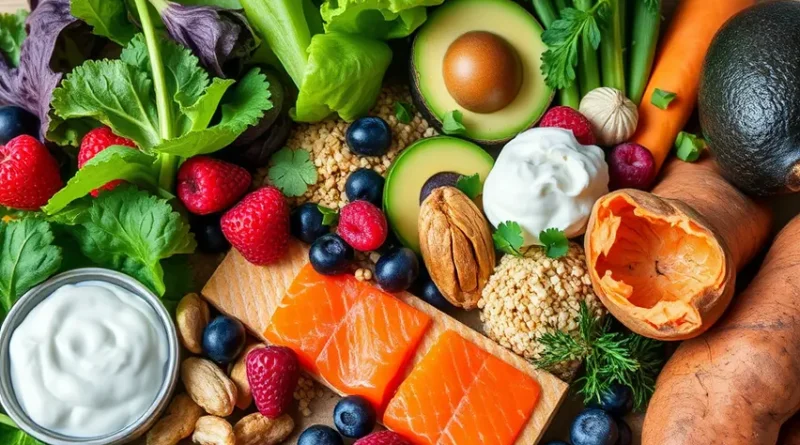The Best Superfoods for Pregnant Women
Pregnancy is a transformative and beautiful journey, but it also comes with its own set of nutritional demands. Expecting mothers need to ensure they’re getting the right nutrients, not just for themselves, but also for their growing baby. Superfoods—the nutrient-packed foods renowned for their health benefits—can play a pivotal role in supporting a healthy pregnancy. In this blog post, we’ll explore some of the best superfoods for pregnant women, detailing their benefits and how to incorporate them into your diet.
1. Leafy Greens
Leafy greens like spinach, kale, and swiss chard are packed with vitamins A, C, K, and several B vitamins. They are rich in iron and calcium, two crucial minerals needed during pregnancy. Iron helps prevent anemia while calcium supports your baby’s bone development. Try tossing spinach into smoothies or salads, or sautéing kale with garlic as a delicious side dish.
2. Berries
Berries—such as blueberries, strawberries, and raspberries—are antioxidant-rich superfoods that provide a natural source of vitamins and minerals. They are known for their anti-inflammatory properties and can support your immune system during pregnancy, which is particularly important as your body adapts to new changes. Enjoy berries as a snack, in yogurt, or blended into smoothies.
3. Quinoa
Quinoa is a versatile whole grain that’s a fantastic source of protein, fiber, and essential amino acids. Unlike many grains, quinoa is a complete protein, which means it contains all nine essential amino acids. It’s also gluten-free and easy to digest, making it a perfect addition to a pregnant woman’s diet. Cooked quinoa can be used as a base for salads, in place of rice, or even blended into smoothies.
4. Salmon
Salmon is an excellent source of Omega-3 fatty acids, particularly DHA and EPA, which are crucial for brain development in the fetus. These healthy fats also help to reduce inflammation and support heart health for both mother and baby. Opt for wild-caught salmon when possible, and consider grilling or baking it to maximize flavor and health benefits.
5. Avocados
Avocados are nutrient-dense fruits that are high in healthy fats, fiber, and various vitamins. They are particularly rich in folate, which is essential in preventing neural tube defects during fetal development. The monounsaturated fats found in avocados help provide energy and are beneficial for maintaining healthy cholesterol levels. Try spreading avocado on whole grain toast, adding it to salads, or blending it into smoothies for creaminess.
6. Nuts and Seeds
Nuts and seeds, such as almonds, walnuts, chia seeds, and flaxseeds, are packed with healthy fats, protein, and fiber. These nutrient-rich snacks can help maintain energy levels and prevent excessive weight gain during pregnancy. Additionally, they provide essential fatty acids and vitamins like E and magnesium. Incorporate them into your diet by sprinkling them on oatmeal, yogurt, or salads, or enjoy them as crunchy snacks.
7. Greek Yogurt
Greek yogurt is another superb option, as it is rich in calcium and protein, two key nutrients for pregnancy. It also contains probiotics, which are great for digestive health—a concern for many women as hormonal changes can affect the digestive system. Consider using Greek yogurt as a base for smoothies, parfaits, or salad dressings for added creaminess and nutrition.
8. Sweet Potatoes
Sweet potatoes are not only delicious, they are also rich in beta-carotene, which your body converts into vitamin A. This nutrient is essential for your baby’s development, particularly for vision and skin health. They are also high in fiber, aiding in digestion. Enjoy them baked, mashed, or even blended into smoothies for added sweetness and nutrition.
Incorporating Superfoods into Your Diet
Incorporating these superfoods into your pregnancy diet can be simple and enjoyable. Aim to create colorful meals that include a variety of these nutrient-rich foods, which will not only provide essential vitamins and minerals but can also make meals more visually appealing.
Remember to listen to your body and speak with your healthcare provider about your nutritional needs during pregnancy. Every woman’s body is different, and what works for one might not work for another.

